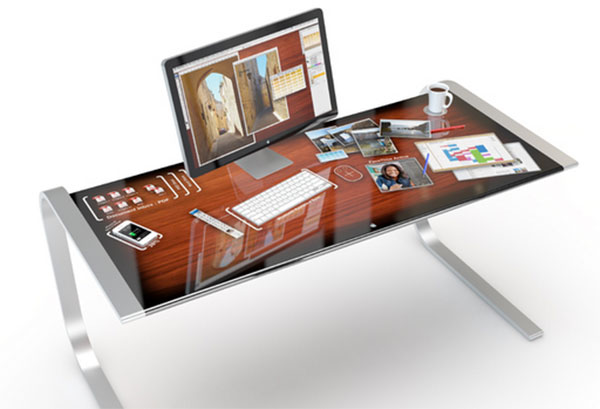The tech business is prone to tunnel vision. Despite their global reach, big companies too often judge their success on the impact they have in the pre-eminent economies of the world ? primarily, the United States. They are encouraged in this by commentators, who also exhibit an American-centric (or else Eurocentric) view of the tech market, by virtue of the majority being based in the upper Anglosphere themselves.
Hence all the baleful predictions about the imminent death of this or that gadget or computer. Western futurologists have, in particular, been predicting the eclipse of laptops by tablets since the iPad launched the latter format into the stratosphere of cool. Intel initially took a more sanguine view, but as mobile devices really started to eat into the laptop market share ? and these devices are almost universally powered by rival CPU architectures ? Intel too has started seriously trying to win back the lost ground.
What?s been missed in all this is the global picture. iPads, and most of its serious rivals, are essentially luxury goods. They have certain productivity-friendly features, sure ? but nobody can seriously imagine that shaving off a pound or so in weight and adding marginal gains in battery life represents a serious net advance on a notebook. Let?s be honest: the iPad is a toy ? a big, shiny, fun but punishingly expensive toy ? whereas notebooks can be more useful for many kinds of users all over the world.
Ever since the first ASCII-graphics games on primitive personal computers, of course, there has been a porous border between the technology of productivity and that of play. Yet it is fundamentally the former that has driven the PC to its current omnipresence. It used to be the case that every new generation of games console would result in a wave of claims that PC gaming was over, dead, finito ? but PC gaming persists, seven and a half generations in, at least in part because you need a PC anyway to do other tasks.
Now consider emerging markets ? most especially China and India, who between them have a population of 2.5 billion. These countries are ?emerging? in two senses: firstly, economic growth is expanding the effective demand for consumer goods; secondly, expansion of businesses creates a demand for the infrastructure and raw materials to make business possible. The latter is the more important process, and to a large extent drives the former. Put simply: especially outside of the leading economies, people need tools, before they can think about toys.
This is reflected in the price structure of the market. Data from Intel suggests that the real cost of a laptop in India is now just 7 percent of the equivalent cost in 1995. On the other hand, an iPad will sell for more or less the same price in India as America. Apple could discount it, but they do not, because they are aware that they are targeting the luxury market, and not the growing employed middle class.
With touchscreens, Windows 8 and all manner of other improvements coming, very lucrative opportunities exist for laptop manufacturers (and the ?traditional? PC business more generally) in the expanding markets outside the G8. The time may come when tablets are genuinely an effective replacement. Until then, all rumours of the humble notebook?s death should be taken with a pinch of salt.
VN:F [1.9.20_1166]
Rating: 0.0/10 (0 votes cast)
VN:F [1.9.20_1166]
Related Posts:
- Will Future Of Education Be Tablet Oriented?
- SE Xperia Play May Control Real Football Game
- Apple iPad: The Best Way To See Things
- 5 Tips for Buying a Laptop
- Buying a Gaming Notebook
- Sakshat Tablet ? The Indian Ipad
- Google Nexus 7: A potent market changer
- Smart Glasses: Technology of Future
- The Best Selling Electronic Products in the UK Market
Source: http://www.techcrates.com/work-play-and-the-future-of-the-pc/
albert pujols the shining mariano rivera mariano rivera jobs report tiger woods masters 2012 nikki haley
No comments:
Post a Comment
Note: Only a member of this blog may post a comment.